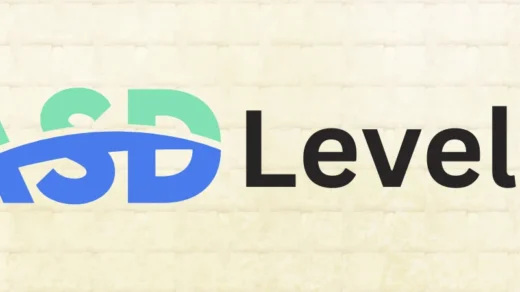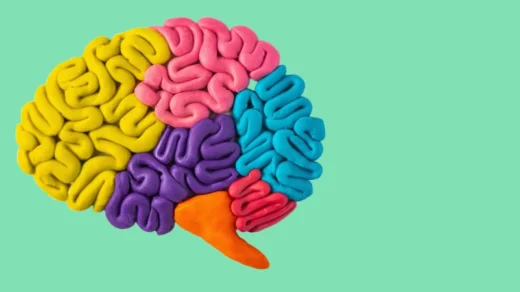If you’re parenting an autistic child, don’t miss out on this must-know guide to understand and support their unique journey!
Every parent wants the best for their child, from providing to understanding their needs. Parenting often feels like exploring unique visions and perspectives, especially when your autistic child sees the world differently. Understanding autism for parents is all about recognizing different behaviors, identifying the unique perspectives from which autistic children see the world, and exploring effective tools to help them learn and grow smarter.
Let’s get on this ‘understanding autism’ journey with us, and get ready to witness your child shine bright.
Join us to understand your child’s Autism journey– Let’s help them shine!
What is Autism:
Autism is a neurodevelopmental condition that affects a child’s communication, behaviors, and social interactions. It can be shown in various ways, including challenges with social interactions, repetitive behaviors or routines, and unique learning patterns. Understanding autism for parents is important to create a supportive environment for autistic children where they can learn, grow, and succeed at their own pace. Early intervention and the right support with patience can help children understand the world around them.
Understanding Autism Spectrum Disorder (ASD):
ASD is a broad spectrum, meaning that every child’s journey is different with various strengths and challenges. Some autistic children may excel in certain areas like maths or music, while others may even need support to perform everyday tasks. Understanding ASD for parents is important as it helps recognize the symptoms earlier, allowing them to provide the right support and care tailored to their child’s needs to improve their strengths and address challenges with patience and understanding.
Early Signs Of Autism in Children:
Recognizing autism early helps parents understand the different behaviors better, and provide timely support. Here are some common early signs of autism in children to watch for:
- Delayed Speech: Limited or delayed speech, lack of response, or difficulty in communicating needs.
- Challenges with Social Interaction: Challenges with making eye contact, smiling, or interacting with others.
- Repetitive Behaviors: Doing repetitive actions or behaviors like hand-flapping, rocking, or repeating words.
- Intense Focus: Highly focused on specific topics, hobbies, or interests.
- Sensory Sensitivities: Sensitivity to loud sounds, bright lights, or textures.
Key Signs to Look Out For:
Early awareness is important to provide the right support to an autistic child. Identifying these key signs early is essential for understanding autism for parents:
- Struggles with engaging socially, and lack of response to their name for 12 months.
- Difficulty understanding emotions or social signals.
- Unusual voice tone, and lack of expressions.
- Difficulty in imaginative or interactive play or sharing experiences.
Identifying these key signs early can help parents provide the right care and support to an autistic child, helping them learn, and grow better.
Supporting Your Child After Diagnosis:
If your child has been diagnosed with ASD recently, you need to provide them with the right guidance and care to help them in this unique journey. After a diagnosis, understanding autism for parents is the first step in providing effective support. Here’s how you can help your child:
- Understand Autism: Educate yourself about your child’s specific needs, and their unique challenges and strengths.
- Build a Support Network: Get in contact with professionals, therapists, and other parents who are parenting autistic children for enhanced guidance.
- Set Realistic Goals: Focus on small, achievable goals and milestones, and set rewards systems to encourage progress.
Therapy and Treatment Options:
Recognizing symptoms can majorly affect your child’s learning and development. Helping parents understand autism includes exploring different therapies to help autistic children like:
- Behavioral Therapy: Teaches essential life skills and manages behavioral challenges through a positive approach.
- Speech Therapy: Helps with language development and effective communication skills.
- Occupational Therapy: Builds cognitive and motor skills and encourages independence in daily tasks.
- Sensory Integration Therapy: Addresses sensory sensitivities to help them overcome, and improve comfort and focus.
- Through Medicines: Medicines help treat specific symptoms like anxiety or hyperactivity but with a doctor’s recommendation or professional guidance.
- Interactive Games: Online interactive games like Wondergames help to build various skills through engaging games, and make learning fun.
Creating an Inclusive Home Environment:
Creating an inclusive home environment means building a safe, supportive space for your kid where he/she can feel understood, supported, and loved. Focus on establishing consistent routines to help reduce anxiety and for a sense of security. Build sensory-friendly areas like quiet corners or soft textures to help them feel comfortable. Encourage transparent communication with them and celebrate their unique strengths and achievements to boost their confidence and self-esteem.
Effective Communication With Your Child:
Communication is the key to better understanding your child’s needs and behaviors. It requires patience, empathy, and embracing the unique ways they express themselves. Here are some ways to encourage effective communication with your child:
- Be patient, let your child process and respond to you at their own pace, and stay attentive to show them their efforts are valued.
- Keep the communication transparent, and use clear, short, and straightforward sentences for them to understand easily.
- Take help from visual tools like pictures, charts, or gestures to convey your message in a relatable way.
- Pay attention to their non-verbal signals like tone, expressions, and body language.
- Celebrate and embrace their small communication goals or wins to boost confidence and encourage growth.
Tips For Building Strong Connections:
Strong connections begin with understanding autism for parents – listening, understanding, and exploring different ways to meet your child where they stand. To build a deep, strong connection with your autistic child, here are some tips:
- Acknowledge their emotions and feelings, and make them feel heard and understood.
- Spend time with them on activities or hobbies they enjoy doing.
- Provide them with a safe, loving environment by being supportive and gentle.
- Be open to understanding their unique strengths, challenges, and communication styles.
- Support their growth, encourage self-expression, and guide them toward independence.
Resources for Parents:
The parenting journey for an autistic child can feel overwhelming at times, but you’re not alone in this! Various resources and guidance are available to help you handle the Autism journey, and provide your child with the best in every way possible. Explore some trusted resources for guidance, tools, and support to help your child succeed.
Where to Find Support and Information:
Some resources to get information and support about Autism involve:
- Local Support Groups: Connect with parents with autistic children for genuine advice and shared experiences.
- Therapy Centres: Explore therapies, specialized care, and best-suited programs for your child.
- Online Websites: Learn more about Autism through websites, forums, and online platforms for expert guidance and tips.
- Educational Tools: Educational apps, games, and visual aids like Wondergames for effective learning and skill development.
- Professional Guidance: Seek professional guidance, and work with therapists and educators for a tailored plan.
How WonderGames Help Children with Autism:
WonderGames – known for blending learning with fun and play, are designed specifically for children with autism. Each game is thoughtfully crafted to develop essential life skills like motor coordination, focus, cognitive development, and social interaction. From problem-solving to enhancing social skills, WonderGames offers interactive and engaging games customized to meet their unique developmental needs. WonderTree provides a safe, fun space for children with special needs to grow and thrive while providing parents with tools to support their growth and celebrate every milestone.
Skills WonderGames Develop in Autistic Children:
Here is the list of skills that WonderGames helps develop in children with ASD:
- Cognitive skills
- Motor skills
- Focus and attention
- Hand-eye coordination
- Response time
- Posture control
- Object recognition
- Visualization
- Bilateral movement
Visit our website, and explore different games for autism to find the best suited for your child’s needs:
Click here to start your 14-day Free Trial Today!
FAQs:
How do you explain autism to a parent?
Autism is a neurodevelopmental condition that can impact an individual’s communication, behavior, and social skills. Understanding autism for parents helps them support and meet their child’s unique needs.
What should every parent know about autism?
Every parent should know that autistic children think and feel differently and the right support from an early age can greatly improve their life. Understanding autism for parents is key to providing care and guidance.
What parenting style is best for autism?
A loving and consistent parenting style works best to support an autistic child. Be gentle with them, set clear and disciplined routines, and use politeness to encourage positive behaviors.
What are the daily chores of autism?
Daily chores of autism may include practicing communication, handling sensory needs, building disciplined routines, and developing essential life skills like dressing, eating, or cleaning.
What do autistic people need most?
Acceptance, understanding, transparent communication, right care, and supportive environments are what autistic people need the most, tailored to meet their unique strengths and challenges.
What is the biggest symptom of autism?
The biggest symptoms of autism include challenges with communication and social interaction such as difficulty understanding nonverbal signals or interacting with people.
What are the activities of daily living for autism?
These daily activities include self-care tasks like eating, dressing, hygiene care, and building social, emotional, or independent living skills through consistent and guided practice.
Do autistic people struggle with chores?
Some autistic people may find certain chores challenging due to sensory sensitivities or struggles with organizing tasks, but the right support and proper guidance can help them overcome these challenges.
What are common things people with autism do?
They may engage in repetitive behaviors, have intense interests in specific topics/hobbies, or prefer predictable routines to feel secure and comfortable.
What are the little things autistic people do?
Little things that autistic people usually do include fidgeting (eg. hand-flapping), avoiding eye contact, or finding comfort in predictable patterns or routines.



